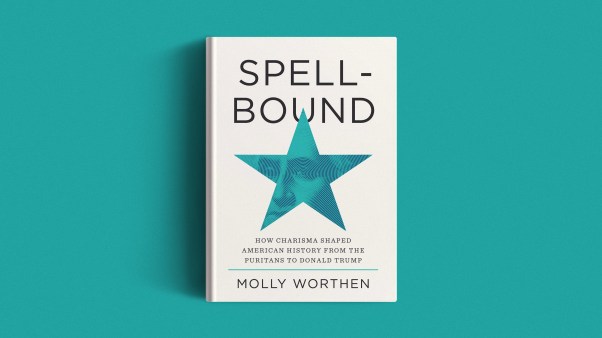Hollywood has long been known for its tantalizing lore about behind-the-scenes bickering over money and power. But the Christian film community may now be getting a taste of the trials of its secular big brother.
For the last four years, Muskegon, Michigan-based Gospel Films, one of the nation’s oldest church film production and distribution houses, and Calvary Chapel, the influential Southern California church that helped launch the “Jesus movement,” have been engaged in a legal tug-of-war over a film in which both claim to have a stake.
At the center of the dispute are videocassette distribution rights for the evangelistic film Fury to Freedom. The 1985 film was produced by Jimmy Kempner, who, in addition to working in film, was at the time employed by Calvary Chapel. According to Calvary Chapel, the church loaned $223,000 to Kempner and to the film’s director, Erik Jacobson, with the understanding the film would be made independent of Kempner’s role with the church.
Calvary Chapel claims that, according to a verbal agreement among all concerned parties, Gospel Films would distribute a 16-millimeter version of the film. The church understood it retained the rights to sell a cable-TV version and market that version on videocassette. The church hired the Escondido, California—based Bridgestone Group to distribute the videotape.
Disputed Contract
In July 1988 Gospel Films filed suit in federal court against Bridgestone, claiming that Gospel Films alone had virtually all distribution rights to Fury to Freedom. Gospel Films produced a contract dated May 7, 1985, in which “Jimmy Kempner and Calvary Chapel, Inc.” are listed as producers and Erik Jacobson as director.
The church claims it never signed the contract. Jeff Smith, vice-president of Calvary Chapel’s radio and TV ministry and the son of the church’s well-known pastor, Chuck Smith, recalls, “We couldn’t believe what it was that we were supposed to have agreed to. The contract was for 99 years, and supposedly we had signed away all rights to Fury to Freedom except one cable-TV broadcast.”
Smith said Calvary Chapel learned later that Kempner had signed the agreement, but with the understanding he was signing as the film’s producer, not as a representative of the church. Kempner has since said he was remiss in not thoroughly examining the legal ramifications of the document. But he said at the time that “there was an atmosphere of Christian fellowship” surrounding the project.
“Jimmy asked our forgiveness for not paying more attention to the contract process,” said Smith. “But we feel Gospel Films was very misleading in its negotiations with him, and that they realized after making verbal agreements with him that they needed the church named in the contract so there would be some ‘deep pockets’ in case something went wrong.”
Gospel Films president Billy Zeoli said his company was “surprised and hurt by the claims that it misled anybody.” He added, “We believe Calvary Chapel went into the agreement with its eyes wide open.”
While Gospel Films did not name Calvary Chapel in the July 1988 suit, it did name the church last September in filing for nonbinding arbitration with the American Arbitration Association, a federal mediation court.
Calvary Chapel sought an injunction to block the proceedings, believing that to participate would be to acknowledge the disputed contract’s validity. The request was turned down, and the federal arbitration proceedings are set to begin this month.
Zeoli said Gospel Films might withdraw its arbitration action against Calvary Chapel “in lieu of Christian conciliation mediation talks” under the supervision of the Los Angeles-based Christian Conciliation Service. He added that, with the prospect of reconciliation, Gospel Films has “permanently withdrawn” its suit against the Bridgestone Group.
Countersuit Filed
But Robert Campbell, president of Bridgestone, said Gospel Films’ suit against his company was dropped “without prejudice,” meaning the case can be reopened at any time. Campbell maintained the suit was unreasonable in part because Gospel Films’ dispute was with the church, not Bridgestone.
Campbell added that Gospel Films sued Bridgestone for “illegal manufacture and distribution of the videotape.” “We never manufactured anything,” he said. “We had an agreement with Calvary Chapel to distribute the tapes they provided to us.” He lamented that Bridgestone’s $5,200 worth of business from the tape “will probably be less than a tenth of the money spent in legal fees on both sides to resolve this thing.”
Claiming that Bridgestone’s business has been unjustly hampered by Gospel Films, Campbell recently filed a multi-million-dollar antitrust, restraint-of-trade countersuit against Gospel Films.
Poles Apart
Zeoli said the countersuit would “undoubtedly damage the efforts by all parties to resolve this conflict in a Christian manner.”
But both Smith and Campbell maintain that Gospel Films’ recent willingness to go to Christian mediation belies an earlier period of intransigence, during which the film company allegedly rebuffed all overtures to resolve the dispute through mediation.
According to Smith, last year Calvary Chapel offered to turn Fury to Freedom over to Gospel Films, but Zeoli countered with eight demands, including $250,000 to cover Gospel Films’ losses. Smith said he found this demand “outrageous and unreasonable.” Zeoli said he understood the two parties to be in negotiation and that he expected a counteroffer that never came.
Smith and Campbell say they would like to submit to binding, Christian arbitration. Gospel Films spokesman Dave Anderson says the company would be open to such arbitration, but that it believes the prudent approach is to begin with nonbinding talks and to “see where it leads.”
Reconciliation has thus far proved elusive. Gospel Films canceled a conciliation meeting that had been scheduled for May. A meeting slated for the following month was nixed by Campbell following the filing of his antitrust suit. There seems to be little hope of a quick settlement.
By Brian Bird.










